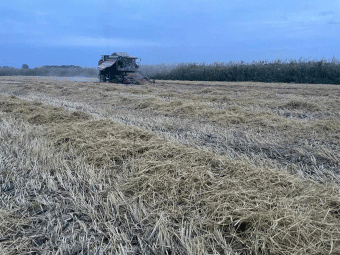The Republic of Dagestan has officially requested that the Russian Ministry of Agriculture consider lifting a two-year ban on rice exports, imposed in July 2022. This restriction was initially introduced in response to the significant drop in domestic rice production following severe damage to key irrigation infrastructure in Krasnodar, Russia’s largest rice-producing region. The accident at the Fedorovsky hydro system in April 2022 led to a reduction in rice output from over a million tonnes in previous years to just 797,600 tonnes that year—a steep decline compared to projections and past harvests.
In recent appeals, Dagestani agricultural leaders, including Khaybulla Khaybullaev of the local Rice Growers Association, have argued that Russia now produces more rice than it consumes, suggesting the surplus could benefit international markets. The region’s rice is particularly sought after in neighboring countries like Iran, where it could fetch higher prices, strengthening the local agricultural economy. However, the national government remains focused on maintaining food security, especially amid ongoing geopolitical challenges and economic sanctions, which have heightened the need to secure essential food supplies for the domestic market.
As of late 2024, the export ban continues, with allowances made only for specific scenarios. These include exports to member states of the Eurasian Economic Union (EAEU) and humanitarian or transit shipments. Despite ongoing calls from Dagestan and other regions, the Russian Ministry of Agriculture has extended the ban until December 31, 2024, underscoring the critical importance of ensuring stable rice availability within the country.
The push-and-pull dynamic between regional economic interests and national policy illustrates a broader challenge faced by agricultural markets worldwide: the balance between fostering export-driven economic growth and prioritizing domestic food stability. As rice remains a staple for millions of Russian households, any policy shifts will require careful consideration of both domestic consumption patterns and the global demand for this essential crop.
The future of Dagestan’s rice exports remains uncertain. While lifting the export ban could yield economic benefits, particularly for rice producers eager to access international markets, the decision must be measured against the risks of destabilizing domestic food supplies. As discussions continue, the outcome will likely hinge on broader agricultural trends and geopolitical factors shaping Russia’s economic policies.
Error




